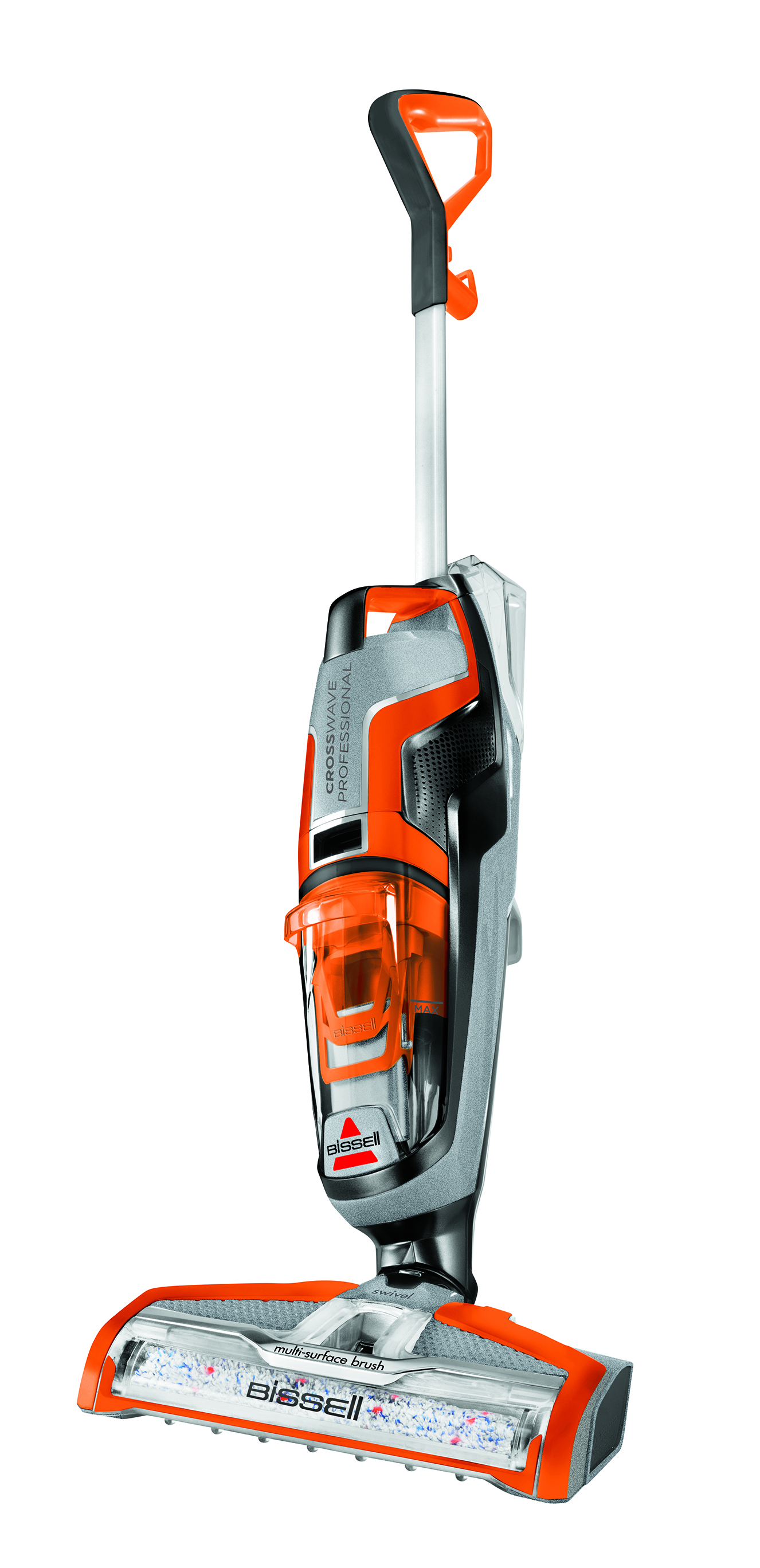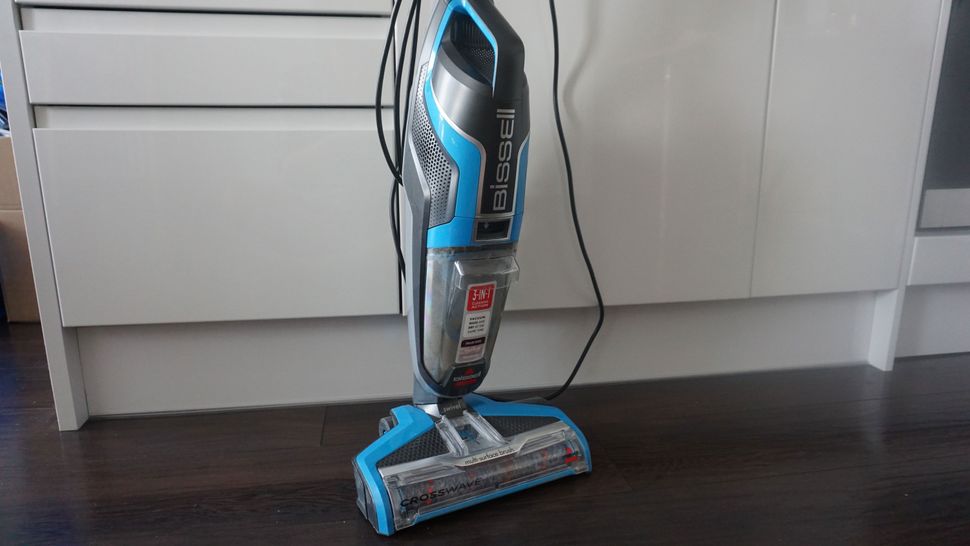Hardwood floors are a beautiful and classic flooring option, but they can be delicate and require careful cleaning. Many people are curious about whether a Bissell CrossWave, a popular multi-surface cleaner, is safe to use on their hardwood floors. After all, cleaning with a machine seems like an efficient way to keep things tidy, and the CrossWave is known for its cleaning power. However, the question remains: is it truly safe to use on hardwood?

Image: good-design.org
In this blog post, we’ll explore the answer to this question. We’ll examine the features of the Bissell CrossWave, look at what makes hardwood floors unique, and delve into the potential risks and benefits of using this cleaning machine on your precious hardwood. By the end of this guide, you’ll be equipped with the knowledge to make an informed decision about whether a Bissell CrossWave is the right tool for your hardwood floors.
Understanding the Bissell CrossWave and Hardwood Floors
The Bissell CrossWave is a versatile cleaning machine that combines the power of a vacuum cleaner with the convenience of a wet mop. It’s designed to handle various surfaces, including sealed hardwood floors. It uses a rotating brush and a spray system to clean and dry floors simultaneously. Its primary selling point is its ability to clean multiple surfaces without needing to switch between cleaning tools.
Hardwood floors, composed of natural wood, are known for their beauty and durability. However, they also demand specific care to maintain their shine and longevity. Unlike some other floor types, hardwood floors are porous, allowing liquids and dirt to penetrate their surface. This makes them susceptible to damage if the wrong cleaning products or methods are used.
The Debate: Is the Bissell CrossWave Safe for Hardwood Floors?
Now, let’s tackle the crucial question. While the Bissell CrossWave is advertised as a cleaning tool for multiple surfaces, including sealed hardwood floors, there are some considerations to keep in mind.
Potential Risks:
The main concern with using a Bissell CrossWave on hardwood floors is the potential for water damage. Hardwood floors, even sealed ones, can be susceptible to water absorption. Excessive moisture can lead to warping, buckling, and even mold growth. This is particularly important in older homes, where wood floors may be more prone to damage. Additionally, some cleaning solutions used in the CrossWave, especially those designed for cleaning other surfaces, might contain harsh chemicals that could strip the protective finish of hardwood floors. In the worst-case scenario, this could result in dullness or even irreversible damage to the wood.

Image: www.techradar.com
Potential Benefits:
Despite these concerns, the Bissell CrossWave can offer some benefits for cleaning hardwood floors when used cautiously. The machine can effectively remove everyday dirt and grime from the surface of the floor. It can also be helpful for quick clean-ups after spills or accidents. However, it’s important to emphasize that the CrossWave should never be used in place of regular vacuuming.
The Importance of Manufacturer Recommendations:
Before using the Bissell CrossWave on your hardwood floors, consult your floor’s manufacturer’s guidelines. They often provide specific cleaning recommendations for your particular type of flooring. Pay attention to whether the manufacturer explicitly recommends using a spray mop like the Bissell CrossWave and make sure you’re using the cleaning solution recommended for hardwood floors.
Tips and Expert Advice:
Here are some expert tips to keep in mind if you’re considering using a Bissell CrossWave on your hardwood floors:
- Always test in a discreet area. Before using the CrossWave on your entire floor, test a small, inconspicuous area. This allows you to check for any potential negative reactions. Look for any signs of discoloration, warping, or other changes to the floor’s finish.
- Use a hardwood-specific cleaning solution. Employ the cleaning solution that comes with the Bissell CrossWave specifically designed for hardwood floors. This solution is formulated to be gentle on your hardwood finish while effectively cleaning the surface.
- Adjust the water level. Don’t overfill the CrossWave’s water tank. Too much water can lead to excessive moisture and potential damage. Use the minimum amount of water needed for a thorough clean.
- Work in small sections. Don’t try to clean your entire floor in one go. Clean in manageable sections, allowing the floor to dry between cleaning passes. This helps prevent excess moisture build-up.
- Avoid over-application. Over-application is a common mistake. This can lead to puddles and streaks. Instead, use a light touch and let the machine do its work.
- Dry thoroughly. After cleaning, dry your hardwood floors as quickly as possible. Use a microfiber mop or towel to absorb any lingering moisture.
Using a Bissell CrossWave on hardwood floors comes with both risks and benefits. While it can offer a convenient way to clean, it’s crucial to understand your floor’s needs and proceed cautiously. Following the tips above, consulting your floor manufacturer’s guidelines, and testing in an inconspicuous area will help you decide if the Bissell CrossWave is a safe and effective choice for your hardwood floors.
FAQs:
Q1: What types of hardwood floors are safe to use with a CrossWave?
Generally, sealed hardwood floors are considered safe to use with a CrossWave, but only if it is used cautiously and according to the manufacturer’s recommendations. However, it’s best to consult the manufacturer of your specific hardwood flooring for their guidelines and recommendations.
Q2. What cleaning solution should be used?
Use the Bissell CrossWave cleaning solution specifically designed for hardwood floors. This solution is formulated to be gentle on your hardwood finish while effectively cleaning the surface.
Q3. Can I use the CrossWave on unfinished hardwood floors?
No. Unfinished hardwood floors are extremely porous and vulnerable to water damage. You should never use a Bissell CrossWave, or any wet mop for that matter, on unfinished hardwood flooring.
Q4. Is it safe to use the CrossWave on floors with a polyurethane finish?
Polyurethane is a durable finish often applied to hardwood floors. As long as the polyurethane finish is in good condition (no cracks or chips), and you follow the tips above, using a Bissell CrossWave on a polyurethane-finished floor should be safe.
Q5. Where can I find more information about my specific hardwood flooring?
Your hardwood flooring manufacturer should have specific cleaning recommendations for your floor type. You can usually find this information on their website, product packaging, or by contacting their customer service department.
Can Bissell Crosswave Be Used On Hardwood Floors
Conclusion
Ultimately, the decision of whether or not to use a Bissell CrossWave on your hardwood floors should be based on a thorough understanding of your flooring type, your manufacturer’s recommendations, and your level of comfort with the risks involved. Always err on the side of caution, and if you have any doubts, reach out to a professional cleaning service or your flooring company for advice. Taking care of your hardwood floors will not only preserve their beauty but also ensure a long life for this valuable investment.
Are you interested in learning more about caring for hardwood floors? If you are, let us know in the comments below!





